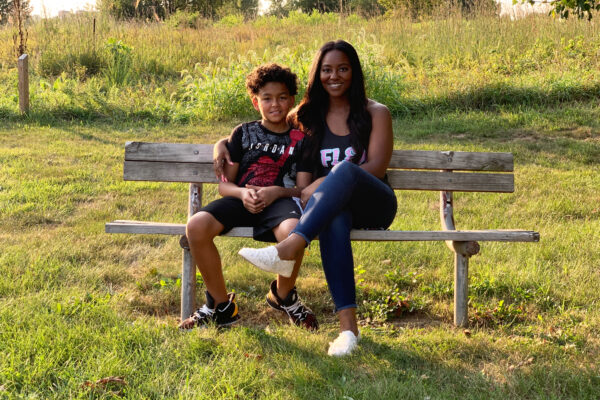Charmaine Alexander has had to make a terrible decision: Send her young son, Corban, who has asthma, to school where others aren't wearing masks and endanger his health and possibly even his life, or keep him at home, even though his Johnston school isn't offering online learning.
It's a choice no parent should have to make. And, in fact, federal law mandates that all children with disabilities must be offered equal educational opportunities. But a law passed earlier this year and signed by Gov. Kim Reynolds bans Iowa public schools from requiring anyone to wear a mask.
Alexander is one of 11 parents who have joined with an Iowa disability rights organization to file a lawsuit to get this discriminatory, dangerous law struck down. Their children are in school districts that offer varying levels of remote learning. Some, like Johnston, offer none. Some offer only pre-recorded sessions with no live interaction with teachers. Some offer more.
Alexander is joined in the lawsuit by parents like Heather Preston of Des Moines, who has two school-age children. One has a rare organ disorder, which her doctor has advised her puts him at risk for serious illness if he contracts COVID.
"I know that a parent can't protect their child from all things, but they have a responsibility to protect them from serious safety threats," Preston says. "It's terrifying for a parent to have to worry every day about the physical safety of their child, and to have to choose between their child keeping up with their education and their child becoming seriously ill, or perhaps even dying. That's a choice no parent should have to make. I want my children to come home safe from school."
The parents and The Arc of Iowa are represented by the American Civil Liberties Union, the ACLU of Iowa, Disability Rights Iowa, The Arc of the United States, the Arnold & Porter law firm, and the Duff Law Firm, P.L.C.
The law, passed earlier this year by the Iowa Legislature and signed by Gov. Kim Reynolds, discriminates against children who are too young to be vaccinated and who have disabilities, including underlying health conditions, that make these children particularly susceptible to severe illness, long-haul COVID-19 symptoms, or even death from COVID. The law effectively excludes them from public schools and denies them equal access to education.
Jonathan Craig, a Waterloo father of four children, is another client participating in the lawsuit. Two of his children are immunocompromised and have chronic illnesses. "I’ve seen first-hand the devastating effects of what happens when children are not afforded their right to a safe and equitable public education."
Because masks aren’t allowed to be required in public schools in Iowa this year, our pediatrician recommended that all four of our children, who are too young to be vaccinated, stay home and learn through virtual learning, as contracting COVID-19 would be life-threatening to our family," Craig said.
But online learning in his school district isn't the same as in person, and it’s wholly inadequate for his daughter. "Because of my daughter's physical and developmental disabilities, she isn’t able to engage with virtual learning and we’re heartbroken to watch her fall through the cracks. We’ve seen our son (who has worked incredibly hard to overcome his own learning difficulties) flourish during his years of in-person schooling but he has fallen behind academically and socially since learning behind a screen for eight hours a day," Craig said.
For families like the Craigs and many others, we are asking the court to block the prohibition on mask requirements at school as a violation of the federal Americans with Disabilities Act and the Rehabilitation Act and to order the state to allow school districts to adopt mask mandates for their students and staff.
"I am doing this to help create a safe environment not only for my own child but for all children," says Preston. "You would think that schools would make the safety of their students their top priority, but unfortunately, that is not happening because of this law."

